Focus
Your Present Location: HOME> Focus-

William Jones: Draw-down of U.S. forces in Africa & Mideast presages Pacific buildup
U.S. Secretary of Defense Mark Esper has not minced any words about his intent on reshaping U.S. force deployments in order to confront a "rising China" in the Asia-Pacific region, redeploying U.S. forces from Africa and the Middle East to the Asia-Pacific region.In addition to the military redeployment, the U.S. Congress has launched a campaign to revive the strategies of the Cold War against China in an attempt to divide or to cripple that country.
2019-12-30 -
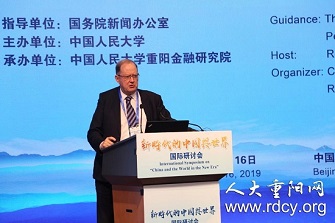
John Ross: US policy on China won’t change
With deep seated problems apparent throughout the world, and increasing instability and uncertainties, will there be a change in fundamental US policy toward China? We have very good news that China and the US have reached a conclusion on a phase one trade deal, which is excellent. But I suppose the answer is "No." The US won't change its fundamental policy, whether Trump is reelected or not. If he is reelected, there obviously won't be fundamental changes. If he is not reelected, the candidates of the Democratic Party are also expected to hold hard line foreign policy. Elizabeth Warren even criticized Trump for not having enough take in US arm of forces.
2019-12-27 -
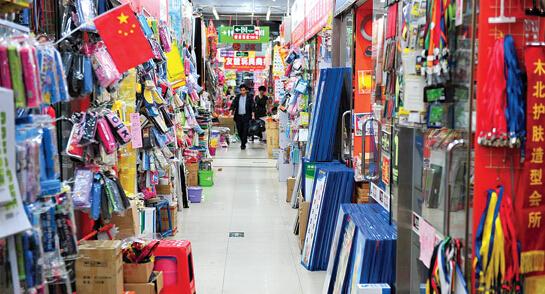
Chinese small commodity sales brisk despite trade war
Flag and banner makers in Yiwu, East China's Zhejiang Province, believe that US President Donald Trump will win re-election next year. The flag makers in the world's largest small commodities production hub are getting more orders for items for Trump's campaign than for any of his rivals, just like in 2016.The orders are an informal means to predict the US presidential election, market insiders say.Under the pressure of the global economic downturn and trade protectionism aroused by the US, Yiwu still saw an increase in exports.
2019-12-27 -
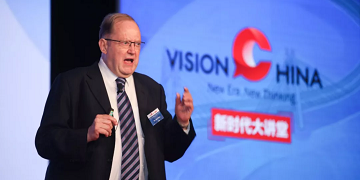
The Greater Bay Area is at the forefront of the 'flying geese' development of China
John Ross, senior fellow at the Chongyang Institute for Financial Studies of Renmin University of China and former director of Economic and Business Policy of London, gives a speech at Vision China 2019 Macao on December 11, 2019. The Guangdong-Hong Kong-Macao Greater Bay Area is in the vanguard of China's global economic rise, said John Ross.
2019-12-26 -
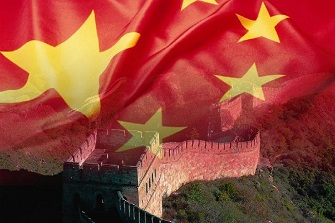
William Jones: A Great Nation on the Rise
China’s development over the last 70 years has been absolutely breathtaking. Because of the commitment of the Party to improving the people’s livelihood, problems that developed along the road were always ultimately resolved on the basis of that commitment.With the reform and opening-up, China was then open to the world in all respects, and thus was given an opportunity to accelerate its own development process with increased trade and foreign investment to accelerate its own development process.
2019-12-26 -
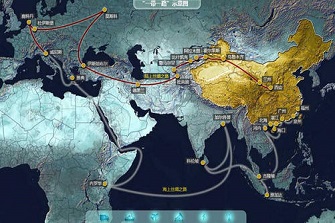
Ding Gang: BRI embodies a different modernity norm
Even Western media outlets skeptical about or even opposed to the China-proposed Belt and Road Initiative (BRI) have to admit that its progress has helped spread the country's influence - the major cause of the West's anxiety. Why is the rising influence of China bad news for the West? On the surface, they believe that through the BRI, China is spreading a way of modernization which does not conform to Western civilizational norms. In essence, they consider China unqualified to disseminate modernity around the globe.
2019-12-26 -
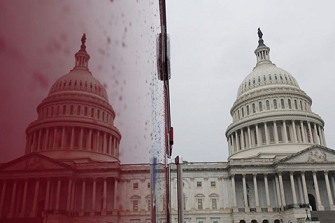
William Jones: Neocons shaping a new enemy image of China
Since the declaration of this policy, the attempt to paint China as a major "opponent" to the US has become something of a whole-of-government affair. It is highly ironic that this occurs at a time when you have an elected president, whose explicit goal had been to create a working - and friendly - relationship with both China and Russia. But US President Donald Trump' s unfortunate focus on trade as the key to reviving the American economy has unfortunately contributed to this as well.
2019-12-25 -
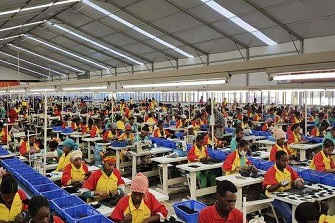
Wang Wen: Global resources key to Chinese firms
From this perspective, both Chinese companies and the Chinese government should learn to optimize the allocation of people, energy, currency, information, law, taxation, culture, institutions, think tanks and other resources, thus to maximize their profitability and benefit the local people.This process has already begun. Since 2013, the China-proposed Belt and Road Initiative (BRI) has been promoted across the world. China has signed agreements on Belt and Road construction with more than 160 countries and organizations.
2019-12-24 -
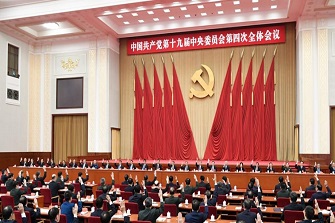
William Jones: The Path Forward
The Fourth Plenary Session of the 19th Central Committee of the Communist Party of China (CPC) , held in late October, received lots of attention. The session gathered 202 members and 169 alternate members, who discussed a work report presented by General Secretary of the CPC Central Committee Xi Jinping, followed by review and adoption of the Central Committee's decisions contained in a draft document on upholding and improving the system of socialism with Chinese characteristics and advancing the modernization of China's governance system.
2019-12-23 -

He Yafei: Partnerships, Identities and Cultural Diversity
When discussing global governance and international affairs, partnership is a word so familiar and common that many won’t even lift an eyelid upon hearing it. Nevertheless it caught global attention when President Xi Jinping proposed to establish a global network of partnerships to buttress the future system of global governance, be it related to security, economics or other things.
2019-12-20 -
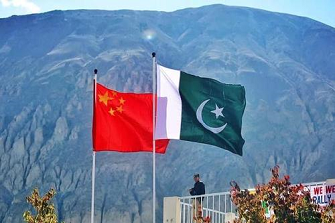
Liu Zongyi: How CPEC hurdles can be overcome
China and Pakistan are all-weather strategic cooperative partners. The two countries are forging a community with a shared future in which China-Pakistan Economic Corridor (CPEC) will play a major role. The CPEC is a major pilot project of the China-proposed Belt and Road Initiative (BRI). Yet the speed of construction of the CPEC has been slowing down recently for which there are three main reasons.
2019-12-20 -
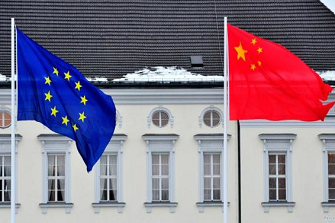
Ding Gang: How will Europe respond to China’s rise?
Two recent events in Europe have been extensively followed by Chinese media. First, as UK's general election was held on December 12 amid a volatile political climate, Brexit became a foregone conclusion. Second, the 5G technology of Chinese tech giant Huawei is facing resistance in Europe. The two events are landmarks in China-Europe and Asia-Europe relations in the 21st century.
2019-12-20 -

John Ross: How significant is the phase-one deal?
Last Friday, it was announced that China and the U.S. have agreed on a phase-one trade deal. As the full text of the agreement has not been made public yet, it is not immediately clear what the specific items agreed upon are. Nevertheless, many people on both sides have hailed it as practical progress in the trade talk. John Ross shares his thoughts on the conclusion of the deal and what the future holds for China-U.S. relations.
2019-12-20 -
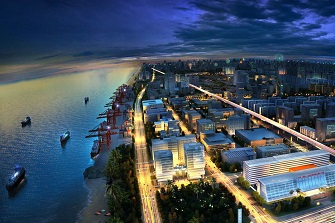
Liu Ying: Further opening-up to protect free trade
This year is crucial to China's higher-level opening-up, symbolized among other things by the construction of the Belt and Road Initiative. That China, amid rising trade protectionism, hosted the second China International Import Expo which attracted more than 180 countries, regions and international organizations, and over 3,800 global enterprises shows it is not only committed to further opening up its economy but also increasing imports to meet Chinese people's ever-growing need for a better life and boost global trade.
2019-12-19 -
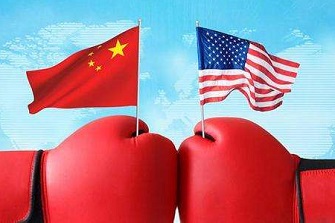
William Jones: Phase one deal, light at the end of the tunnel?
A lot of people breathed somewhat easier as the announcement came out that U.S President Donald Trump was ready to accept the partial agreement negotiated with China on trade and would not impose the tariff increase on Chinese products scheduled for December 15. There was little fanfare regarding the agreement, though. President Trump agreed to it at a meeting of his advisers on Friday and Michael Pillsbury, who has a strong bias against China but is an adviser to the president on China, elaborated on the discussion with the president on Fox's Lou Dobbs.
2019-12-18 -
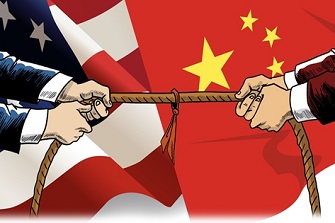
Wang Wen: How China can gain from trade headwinds
"US-launched trade war against China is turning into a protracted one, but we have been prepared," Yang Jinghui, chairman of a technology company in Hongmei, a town of Dongguan in South China's Guangdong Province, told me. As over half of the products that his company makes are sold to the US, his business has been deeply influenced by the tariffs slapped by the superpower. However, what I saw was his optimism and positivity, instead of anxiety and despair.
2019-12-17 -
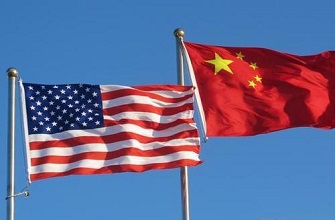
Zhao Minghao: Uncertainties remain in China-U.S. trade negotiations
China and the U.S. have announced the conclusion of phase one trade deal in a bid to ease the trade war. President Trump called it an "amazing deal" and revealed that the two sides would begin negotiations on the phase two deal soon. It's clear that the U.S. is getting softer on China than before. The White House is trying to use the China-U.S. trade deal and the signed U.S.-Mexico-Canada agreement as leverage to get Trump out of the political conundrum triggered by the impeachment process.
2019-12-16 -

William Jones: Will Congress' Uygur bill provide 'aid and comfort' to our enemies?
Recent legislation, by the U.S. Congress targeting Chinese officials tasked with the goal of preventing terrorism in the northwestern region of China, Xinjiang, will no doubt provide "aid and comfort" to some rather despicable characters who view the United States and China as the "Great Satan," namely supporters of the East Turkestan Independence Movement, labeled by the United States as a terrorist organization shortly after 9/11.
2019-12-13 -
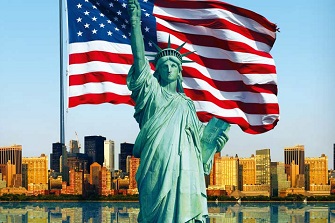
Liu Zhiqin: Does the US have shortage of philosophers?
The US can boast of a good many world renowned scientists, skilled diplomats, top sportsmen and numerous arts and culture icons. There is no shortage of military strategists or writers either. Yet this promised land seems to run low on philosophers. Isn't it paradoxical?This wealthiest country on the Earth has the creme de la creme from all walks of life, and top notch professionals command the best salaries. All types of professionals except philosophers have a market value in the US. They don't have much of a podium, and have a small fan base. Not to mention, their work is not up to American standards.
2019-12-13 -
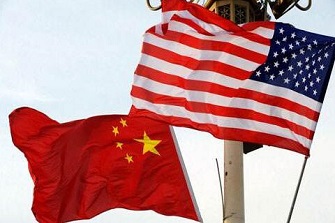
Wang Peng on China-US Relations in the Xi and Trump Eras
The trend of increasing polarization in U.S. domestic politics has made it so that current and future governments, no matter which political party, will find it difficult to propose, implement, and maintain a stable and peaceful China policy. It will be easier to go toward an extreme. This is because office holders (including presidential candidates), in a situation where it’s more and more difficult to reconcile political differences, will be forced to adapt to this polarization (or even make use of it, following the methods of Trump himself).
2019-12-12
























































































 京公网安备 11010802037854号
京公网安备 11010802037854号





